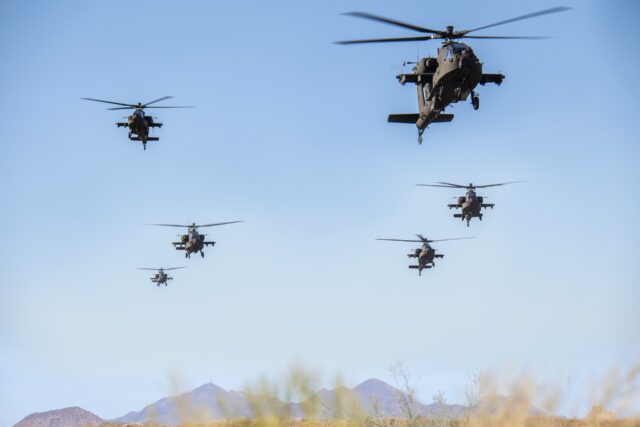Switzerland F-35 order could be cancelled as Trump slaps 39% tariffs on imports

August 12, 2025

Switzerland’s controversial order for 36 Lockheed Martin F-35A fighter jets is under renewed political siege after US President Donald Trump imposed a 39% tariff on Swiss imports.
The tariff, announced on Switzerland’s national day on 1 August, has sparked bipartisan outrage in Bern and intensified calls to scrap the $9.1 billion contract, up from its original $6.25 billion price tag.
The tariffs, framed by Washington as a corrective measure to reduce the US trade deficit with Switzerland, have not only jolted Swiss policymakers but also accelerated global scepticism around the US-built 5th-generation fighter.

The F-35 is now emerging as a symbolic casualty of Trump’s increasingly protectionist and confrontational trade policies.
“This situation is no longer sustainable,” Hans-Peter Portmann, foreign policy spokesperson for Switzerland’s Free Democratic Party, told Swiss outlet Blick. “We should consider cancelling the remaining tranches and procuring European alternatives. We must not act as if nothing has happened.”
F-35 fighter jets become a political flashpoint
The controversy in Switzerland comes just days after Spain formally ruled out purchasing the F-35. Spain is instead opting to expand its Eurofighter fleet and continue development of the Future Combat Air System, a joint European fighter programme involving France, Germany and Spain.
The decision followed Trump’s harsh rebuke of Madrid for its refusal to commit to NATO’s proposed 5% of GDP defence spending target by 2035.
However, Spanish defence officials have stressed their preference for domestic industrial participation and pan-European defence integration. This is a message that resonates with other countries rethinking their defence ties with the United States.

In Canada, there has been growing parliamentary resistance to the F-35 purchase, with opposition parties demanding transparency over costs and long-term support commitments.
Similarly, Portugal has reportedly expressed concerns over rising maintenance costs and future parts supply, issues that could be exacerbated by US trade friction and export restrictions.
According to defence analysts, countries disillusioned by US security policy or penalised by Trump’s economic actions are increasingly viewing the F-35 as a strategic pressure point and a target for retaliation.
“Countries seeking to retaliate against Trump’s tariffs or security policies have made the F-35 stealth fighter a ripe target,” Politico Europe noted this week.
Switzerland’s F-35s could cost an additional $1.3 billion
Switzerland signed the F-35 contract in 2022, after a contentious political battle and a narrow public referendum in 2020 that approved the procurement by just 50.1%. The 5th-generation jet was chosen over the Eurofighter, France’s Dassault Rafale, and Boeing’s F/A-18 Super Hornet.
However, the deal was finalised before opponents could force a second nationwide vote, a move that has continued to fuel domestic resentment.

Left-wing parties have warned since June 2025 that additional costs up to $1.3 billion could be incurred due to tariff-linked price escalations and the fact that US price guarantees only cover domestic Air Force sales.
With the tariff fallout now intensifying, a renewed petition by the “Stop F-35 Alliance” has already garnered over 42,500 signatures, calling on the Federal Council to cancel all future deliveries.
While some US allies are reconsidering F-35 purchases, India has already said a definitive “no.”
Despite a strong US diplomatic push and the jet’s high-profile appearance at Aero India 2025, New Delhi ruled out acquiring the F-35, citing its focus on strategic autonomy, local manufacturing, and technology transfer.
India’s decision is widely viewed as a pre-emptive hedge against the very kind of dependencies and policy volatility now afflicting Switzerland.
“India’s cautious approach now seems prescient,” said one European defence official in India. “By refusing the F-35, India retained control over its industrial and strategic choices, something Switzerland is now struggling to do.”
Switzerland’s future defence strategy is uncertain
The Swiss government has so far refrained from taking a formal stance following Trump’s tariff decision. But with rising public pressure, cross-party opposition, and deepening diplomatic tension with Washington, Bern may have little choice but to revisit its procurement roadmap.

Options include absorbing the cost increases and continuing with the F-35, halting further deliveries, or pivoting towards European-built aircraft, possibly rekindling industrial collaboration within Europe’s growing defence ecosystem.
Whichever path Switzerland chooses, one thing is clear: the F-35, once seen as a symbol of cutting-edge capability, has now become a flashpoint in an evolving global contest over sovereignty, supply chains, and the cost of American alliances.
















